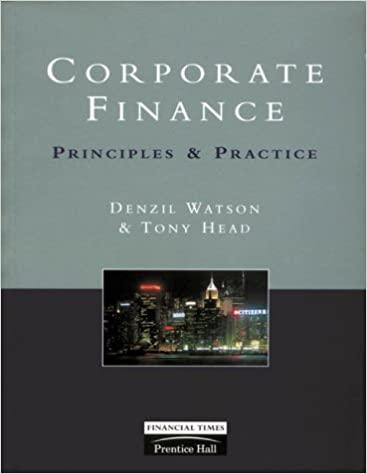Question
Historically, investors holding corporate equities have earned a premium, or extra return for holding equities instead of bonds. Economists have assumed that the equity premium
Historically, investors holding corporate equities have earned a premium, or extra return for holding equities instead of bonds. Economists have assumed that the equity premium, which has averaged about 7 percent during the post-Depression period, is a measure of the compensation that investors require for taking on the extra risk inherent in equity investments (stocks). Recently, there has been a significant decline in the equity premium on stocks. Between 1990 and 2000, the value of U.S. corporate equities rose 425 percent, and, as a consequence, the return on a diversified stock portfolio has been much lower than its historic average and close to the return on U.S. government bonds. One possible explanation of a shrinking equity premium is the greater opportunity for portfolio diversification the "mutual fund effect."
How could the growth of mutual fund investing result in a smaller equity premium in the future? Carefully explain.
Step by Step Solution
There are 3 Steps involved in it
Step: 1

Get Instant Access to Expert-Tailored Solutions
See step-by-step solutions with expert insights and AI powered tools for academic success
Step: 2

Step: 3

Ace Your Homework with AI
Get the answers you need in no time with our AI-driven, step-by-step assistance
Get Started


